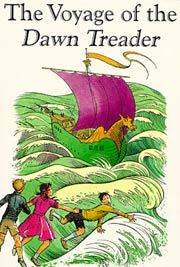Interview: Topher Grace and Dan Fogler of ‘Take Me Home Tonight’
Posted on March 2, 2011 at 3:24 pm
Topher Grace (“That 70’s Show,” “”) and Dan Fogler (Tony award winner for “The 25th Annual Putnam County Spelling Bee”) co-star in the wild, raunchy, but sweet comedy “Take Me Home Tonight,” a loving tribute to the 80’s and 80’s music and movies. Grace plays a recent college graduate who is a little afraid to get on with his life until he runs into his high school crush (Teresa Palmer) and has one wild night risking everything to try to get her attention. Fogler plays his best friend and Anna Faris plays his twin sister.
This is like the movie John Cusack never made.
TG: That’s exactly what we wanted it to be. That’s a great review! It’s just as much genre travel as time travel. When we started the process, me and my friend said, “What happened to those John Hughes movies where you can do great comedy and great drama and work with great friends like Dan?” There are movies that are all raunchy now, and they’re great for what they are, or all romance. But we missed those movies from John Hughes and Cameron Crowe like “Fast Times at Ridgemont High” and “Say Anything” with actors that weren’t huge movie stars yet.
My producing partner pointed out that “Dazed and Confused” took place in the 70’s and was shot in the 90’s. “American Graffiti” took place in the early 60’s and was shot in the 70’s. I think 20 years are a revolution of time, where the 50’s are like the 70’s and the 60’s are like the 80’s.So if we made this now, we’d be the right distance from the time period. So we married those two themes together and began with the soundtrack.
It’s a great soundtrack! It does feel like a soundtrack with a movie attached — it has such a strong and evocative collection of songs.
DF: There’s a great song for every scene. I love the “Straight Outta Compton” one when we steal the car. I love the “You can Dance” getting into the dance-off.
TG: We wanted it to be like a musical, where the feeling of the character is so much they can’t just talk about it, they have to sing. We wanted the music to be so of what these characters are going through that the soundtrack had to come first.
What is it about 80’s movies that makes them special?
DF: Nostalgia. It was definitely a rabid cocaine-fueled peacock as far as decades go. So even if you weren’t growing up in that era, it’s still a fascinating time because everything is so in your face. I was born in 1976 so a lot of my formative years were in the 80’s and it was a total pleasure to go back and spend some time there again.
TG: We didn’t want to make fun of the time period. We wanted the movie to be about the characters and the decade but not to spoof it. It’s a hard decade not to make fun of. But we wanted it to be more like a time travel back to it. The real trick is that in movies like “American Graffiti” and “Dazed and Confused,” they deal with timeless issues and characters you want to watch, no matter when it takes place.
DF: It’s very relevant today, with economy issues and people getting out of college and not knowing what to do.
TG: I hope years from now, people won’t remember whether this movie came out in the 80’s or later on.
Your father in the movie is an 80’s icon, Michael Biehn of “The Terminator.”
TG: We wanted someone who was of the 80’s but not stuck in the 80’s. He is so talented and so great in the scene where he finds us in the car. And it is funny to think that in real life now we’re past the time when he was supposed to be living in the future.
I really enjoyed those moments that reminded me of details of the era I had forgotten, like Drexel Burnham, the powerhouse financial firm that collapsed after its most important trader, Mike Milken, went to jail).
TG: Yes, we had a couple of Mike Milken jokes in there but didn’t want to gild the lily, as they say.
What are your favorite 80’s movies?
DG: “Bachelor Party,” “Ferris Bueller” is probably my favorite, “Back to the Future,” “Breakfast Club”
TG: Our one wink to John Hughes is the name of the high school in the movie: Shermer. I liked “Fast Times at Ridgemont High” because not everything works out all right. They didn’t pull any punches. There’s stuff coming at you that’s dangerous and sexy and weird. And it has great characters.


